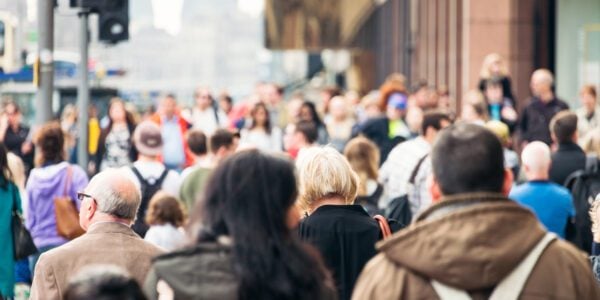The Nuffield Foundation’s Oliver Bird Fund (OBF) and Versus Arthritis are launching a third round of grant funding for research into improving the lives of people of all ages who are living with musculoskeletal (MSK) conditions, with £6m of new money available.
The OBF is providing £4m and Versus Arthritis, £2m. Grants of up to £750,000 for up to four years are available for high-quality, high-impact projects, and we are also willing to consider applications above this limit, and for longer timeframes.
In the UK more than 20 million people, around a third of the population, have an MSK condition such as osteoarthritis, rheumatoid and psoriatic arthritis, back pain, fibromyalgia and rarer conditions such as lupus. MSK conditions can affect people at any age and are the greatest cause of pain and disability in the UK, affecting people’s ability to go to school, work, care for a family, and live independently.
The Oliver Bird Fund is already supporting 12 research projects worth more than £6m from two previous funding rounds. This third round is an important opportunity to further grow an evidence base of research that can make a difference to people’s ability to live well with MSK conditions at any stage in their lives.
The focus of the funding is not on medical or healthcare research, but enabling children and adults who have an MSK condition to participate as fully as possible in society. There is also a specific need for research that will inform efforts to reduce inequalities in how people live with their condition, and the support they receive.
People with MSK conditions have contributed to the development of this funding call, and will also be involved in assessing applications to ensure that the projects receiving funding are those that can lead to real benefits for the community.
Dr Catherine Dennison who manages the OBF at the Nuffield Foundation said: “We are looking for applications that will help people with MSK conditions have a better quality of life. Research ideas should focus on improving economic and social well-being, which can include ensuring public services consider the needs of people with MSK conditions or recommending new ways for schools, workplaces and communities to support people to take part in everyday activities.
“We know that ethnicity, gender, poverty, job role, living conditions and geography all impact the experiences of people who have MSK conditions, so we are particularly interested in funding projects that will tackle these inequalities.”
Professor Lucy Donaldson, Director of Research and Health Intelligence at Versus Arthritis, said: “Musculoskeletal conditions like arthritis can be debilitating, horrifically painful and feel inescapable. People often face a daily struggle in which every activity is made harder or even impossible, finding themselves isolated from work, school and university, or prevented from connecting with family and friends. Health inequalities make this situation worse, resulting in a vicious cycle that is unfair and unequal for different groups.
“At Versus Arthritis we see first-hand the incredible benefits that community, personalised support and empowering people to live well with their condition can bring, but as a society we need better tools and understanding to provide this more holistic approach. We are delighted to be partnering with the Nuffield Foundation for a third time, with an increased investment to fund projects that will make a real, tangible difference to people’s lives, and prevent worsening health inequalities.”
Application process
Applicants must be based in a UK institution and need to submit an outline application by 16 September 2024.





















































